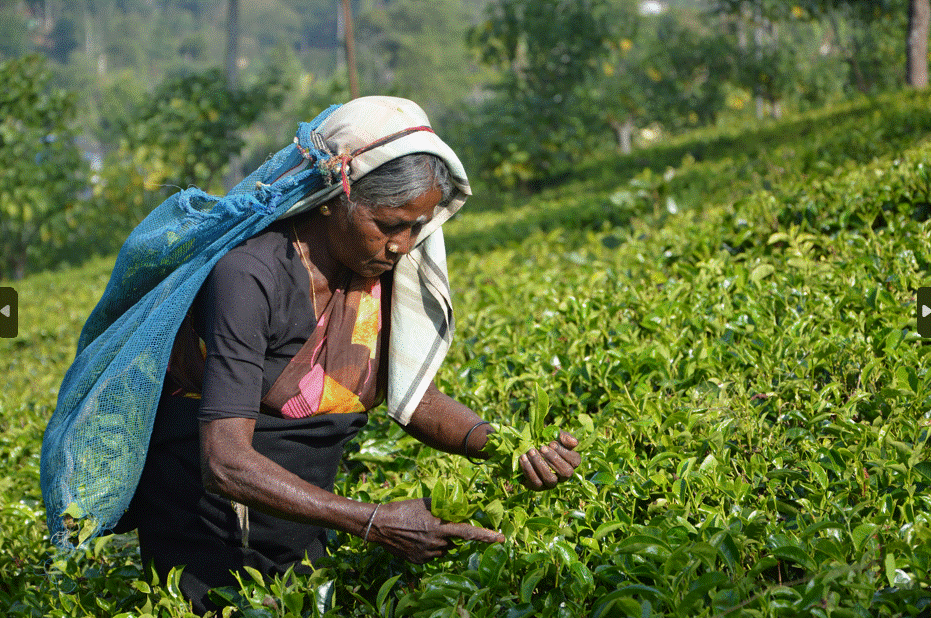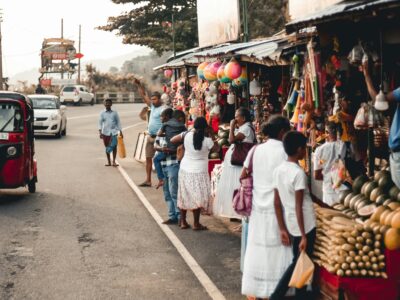30-04-2024
Dara Masita
Human Rights Researcher
Global Human Rights Defence
With hardly any rainfall, less food, and less income, Sri Lankan women are taking anger from the men in their household. In Sri Lanka, domestic violence is already a common event, where 1 in 5 women suffer from it. However, adding climate-induced scarcity, women become more vulnerable. Domestic violence as a consequence of climate change is not thoroughly studied but it exists. This particularly occurs in developing nations where droughts, floods, storms, and heat waves can cause economic struggles which turn into anger and violence.
Rashmini de Silva, a gender and climate researcher, said when basic needs are not being met, women can suffer physical, verbal, and psychological abuse. Several women from the village of Sapumal Thenna in North Central Sri Lanka have come out and said that they have been abused because they were unable to grow enough food for their families due to drought and the overall climate change.
In this situation, less water means less independence for women. The agricultural sector makes up around 25 percent of Sri Lanka’s economy. One-third of these workers are women. As instances of crop failures during harvest seasons are increasing in frequency, women face income cuts and ultimately become more dependent on their husbands. With that, their husbands may not permit them to visit their parents or siblings, which in turn aggravates gender-based violence.
When reported to officials, they often offer unhelpful advice. The police say to make peace with their husbands for the sake of the children, advice which reflects Sri Lanka’s conservative society. In Sri Lanka, they believe that domestic violence should be kept behind closed doors and not discussed openly. This viewpoint enables perpetrators to continue their abusive behavior unchecked while discouraging victims from seeking help or speaking out.
Sri Lanka has legislation that prevents and punishes domestic violence, such as the Penal Code Ordinance No. 2 of 1883, the Code Criminal Procedure Act No. 15 of 1979, and the Prevention of Domestic Violence Act No. 34. On top of that, Sri Lanka has ratified the Convention on the Elimination of All Forms of Discrimination against Women (CEDAW). In CEDAW’s General Recommendation No. 19, it recognises gender-based violence as a form of discrimination which inhibits women’s enjoyment of freedoms and rights.
Despite the presence of legal mandates, the greatest challenge lies in ingraining this ideology within deeply patriarchal societies like Sri Lanka. Individuals within law enforcement, from police officers to judges, are a part of this patriarchal system, where domestic violence is often normalised. This makes it harder for society to move past it. To tackle the issue, the community and the government should be fully dedicated to decreasing gender-based violence through education, female empowerment, and legal reforms.
The situation in Sri Lanka highlights climate change as a threat multiplier. Climate change transcends its traditional environmental realm and intersects with social, economic, and political dimensions, amplifying its impact across multiple sectors. Ultimately, this issue underscores the urgency of climate change and further emphasises that a lot of livelihoods are at stake in a variety of ways.
Sources and further readings:
Dimuthu Attayanake, ‘Domestic Violence Is Cost of Climate Change for Sri Lankan Women’ (Pulitzer Center, 14 February 2024) <https://pulitzercenter.org/stories/domestic-violence-cost-climate-change-sri-lankan-women> accessed 30 April 2024.
‘Women’s shelters in Sri Lanka support survivors of gender-based violence’ (UN Women, 2023) <https://www.unwomen.org/en/news-stories/feature-story/2023/11/womens-shelters-in-sri-lanka-support-survivors-of-gender-based-violence> accessed 30 April 2024.
Aingkaran Kugathasan, ‘SRI LANKA’S PREVENTION OF DOMESTIC VIOLENCE ACT: AN EYE-WASH’ (Ideas for Peace, 2012) <https://ideasforpeace.org/content/sri-lankas-prevention-of-domestic-violence-act-an-eye-wash/> accessed 30 April 2024.
‘Climate change recognized as ‘threat multiplier’, UN Security Council debates its impact on peace’ (United Nations News, 2019) <https://news.un.org/en/story/2019/01/1031322> accessed 30 April 2024.







Comments